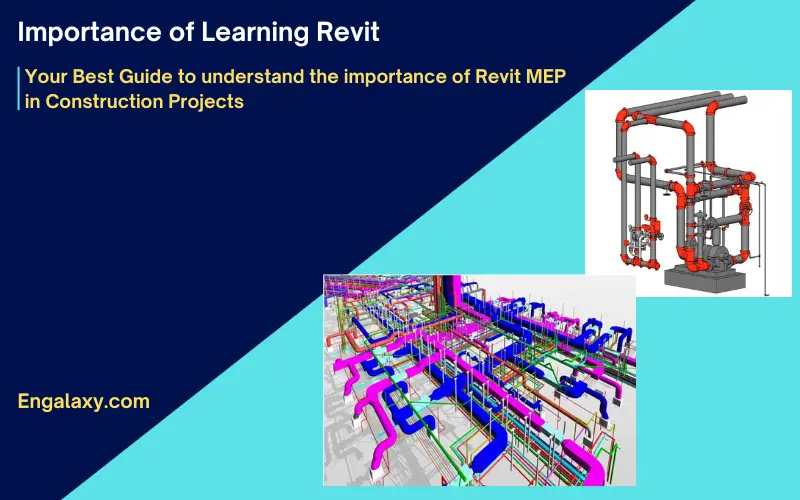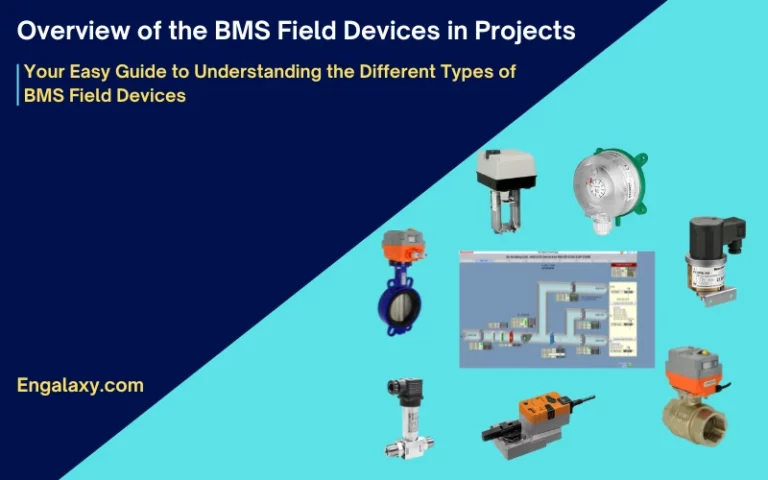
What is Revit?
In today’s highly competitive job market, professional development has become essential for success.
As the world continues to evolve, it is vital for engineers to stay up-to-date with new technology and software.
One such software that has gained immense popularity in the construction industry is Revit.
Revit is known as a Building Information Modeling (BIM) software; it’s being used extensively by architects, engineers, and construction professionals.
The software has revolutionized the way construction projects are designed, planned, and executed.
However, for various reasons, many engineers still need to learn the software.
In this blog post, you will know the importance of learning Revit for MEP engineers and how it can benefit their careers.
MEP (Mechanical, Electrical, and Plumbing) engineers play a crucial role in the construction industry.
They are responsible for designing and maintaining the building’s mechanical, electrical, and plumbing systems.
The role of MEP engineers has evolved with the integration of BIM software like Revit.
Revit is industry-standard software.
Revit is industry-standard software, particularly in MEP (Mechanical, Electrical, and Plumbing) engineering.
MEP engineers are responsible for designing, installing, and maintaining all the electromechanical systems in buildings, including the HVAC (Heating, Ventilation, and Air Conditioning), plumbing, firefighting, and electrical systems.
Revit is a powerful tool for MEP engineers to create 3D models of these systems, allowing them to visualize and optimize the design before construction begins.
Because Revit is widely used in the industry, it’s essential for MEP engineers to learn this software to stay competitive in the job market and to ensure they can work effectively with other professionals involved in a building project.
Furthermore, Revit’s compatibility with other design and analysis software makes it a valuable asset for MEP engineers to streamline their workflow and increase productivity.
Offers increased efficiency and accuracy.
One of the key reasons why MEP (Mechanical, Electrical, and Plumbing) engineers should learn Revit is that it offers increased efficiency and accuracy in their work.
Revit we can say it is a building information modeling (BIM) software that allows MEP engineers to create detailed 3D models of the electromechanical systems, HVAC (Heating, Ventilation, and Air Conditioning) systems, plumbing, and firefighting systems used in a building.
With Revit, MEP engineers can easily collaborate with architects and other professionals in the building design process, resulting in a more coordinated and integrated design.
Additionally, Revit’s parametric modeling capabilities enable engineers to make quick changes to their designs and see the impact of those changes in real time, reducing the risk of errors and saving valuable time.
By learning Revit, MEP engineers can streamline their workflows and produce more accurate designs, resulting in better quality and more cost-effective projects.
Provides better collaboration opportunities.
Revit is a powerful tool that is gaining popularity among MEP engineers, and for good reason.
One of the key benefits of Revit is that it provides better collaboration opportunities, especially when it comes to working on complex electromechanical (MEP) systems.
With Revit, engineers can easily collaborate with other teams involved in the project, including HVAC, plumbing, firefighting, and electrical teams.
This level of collaboration allows for better communication and coordination, which results in a more accurate and efficient design process.
Revit’s ability to allow multiple users to work on the same project in real-time while keeping track of all changes and updates ensures that all stakeholders are on the same page throughout the entire project.
Revit is an invaluable tool for MEP engineers, providing a platform that enables better collaboration and efficient workflows.
Increases project visualization capabilities.
Revit is a powerful software tool that is widely used by MEP (Mechanical, Electrical, and Plumbing) engineers to design and document complex building systems such as HVAC, plumbing, firefighting, and other electromechanical systems.
One of the key benefits of learning Revit is that it can significantly increase project visualization capabilities. Revit allows engineers to create 3D visualizations of MEP systems, which can help stakeholders and clients better understand the design concepts, identify potential issues, and make informed decisions.
This is especially important in the MEP industry, where design errors can be costly and time-consuming to fix.
By using Revit, MEP engineers can reduce the risk of errors, improve collaboration with other stakeholders, and deliver better-quality projects on time and within budget.
Offers greater job opportunities.
One of the key advantages of learning Revit for MEP engineers is that it offers greater job opportunities.
Revit is widely used in the electromechanical, HVAC, plumbing, firefighting, and other related industries. As such, MEP engineers who are skilled in using Revit are highly sought after by companies in these fields.
By learning Revit, MEP engineers can expand their skill sets and become more competitive in the job market. They will have the ability to design and model complex electromechanical, HVAC, plumbing, and firefighting systems, which are essential components in many construction projects.
Additionally, Revit proficiency can lead to increased job responsibilities and higher salaries. Therefore, it is highly recommended that MEP engineers learn Revit to stay up-to-date with industry trends and advancements and increase their job prospects.
Conclusion
In conclusion, MEP engineers can greatly benefit from learning Revit as it provides a valuable tool for designing and coordinating building systems in a collaborative environment.
The software’s features and tools allow engineers to create detailed models, analyze systems, and make informed decisions throughout the design process.
With Revit, MEP engineers can improve efficiency, accuracy, and productivity while also staying up-to-date with industry standards and technological advancements.
In today’s competitive job market, having Revit proficiency can also be a valuable asset for career advancement and professional development. Therefore, it is highly recommended that MEP engineers invest time and effort in learning Revit to enhance their skills and stay relevant in their field.
Expert Advice
Enroll now in our Full MEP Package of Online Courses and get immediate access to more than 180 lectures in our different online courses. Plus, during your subscription, you will get access to all the new future courses & lectures added to the package.
You can get access to all courses and lectures by clicking this button.
Note: We offer you a 14-Day Money Back Guarantee if you don’t like the course
All our blog posts can be found on this link:









